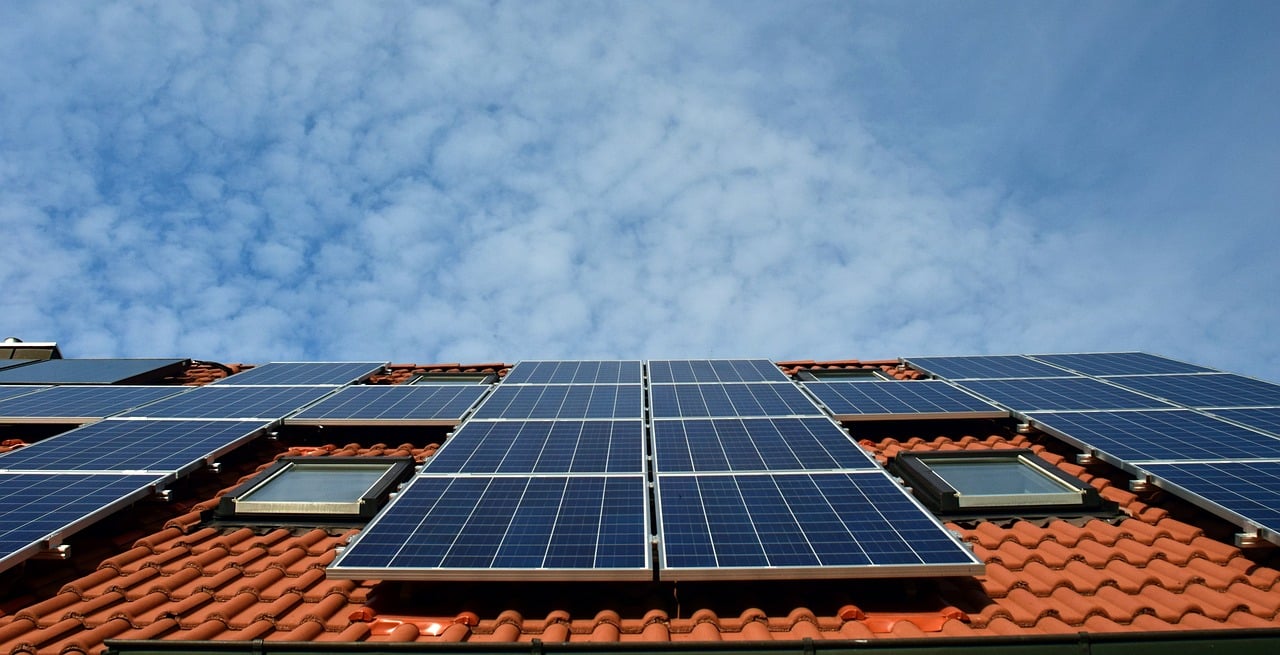As renewable energy continues to rise in popularity, more than 1 million homes across the UK now have solar panels installed.
And, although solar panels can come with a hefty initial investment – average installation costs sitting at around £5,500 - the idea is that through initiatives such as the Smart Export Guarantee (SEG), they will eventually save enough money on your energy bills to recoup your initial outlay and more.
When it comes to home insurance, providers view solar panels to be a valuable asset. This added value, as well as the cost to replace them in the event they are damaged, therefore, will need to be considered when determining what you pay for your home insurance.
Does buildings insurance include cover for solar panels?
As long as they’re physically attached to your property, most solar panel systems should be covered by your home insurance. These include:
- Photovoltaic (PV) monocrystalline panels
- Photovoltaic (PV) polycrystalline panels
- Hybrid panels with heat exchanges
- Solar tiles
If you have freestanding, ground-mounted solar panels in your garden or on a balcony, these will generally not be covered by your buildings insurance as they are not part of the structure of your home.
Does buildings insurance cover solar panels?
Standard buildings insurance should protect your solar panels against events such as floods, fire, falling trees, subsidence, and malicious damage (theft or vandalism).
Does cover extend to accidental damage to my solar panels.
Most home insurance policies will not include accidental damage cover as standard. So, you may want to consider taking out additional accidental damage cover to protect your solar panels against unintentional damage.
Is general wear and tear to solar panels covered?
Home insurance will not provide cover for general wear and tear. This means that it is up to you to keep your property in good working order, and you will not be compensated when your solar panels reach the end of their lifespan.
However, most solar panels will come with numerous years warranty (up to and more than 20 years).
How long do solar panels last?
The industry standard for most solar panels’ lifespans is between 25 to 30 years. Solar panel warranties are split into two parts: product and power.
Product warranty: covers the defects in the equipment, for example if your panels suddenly stop working a few months after installation due to a fault in the materials or workmanship. A product warranty is usually valid for at least 10 years.
Power warranty: Also referred to as the ‘power output warranty’, ensures that a panel still produces a minimum amount of output after a certain amount of time has passed (e.g., 5, 10, 20 years). All panels will gradually degrade in efficiency, so the output of power in solar panels will naturally decrease.
If the panels do not perform as promised, you may be able to have them repaired or replaced. Power warrantied with most solar companies will be offered as linear degradation warranties – for example, 0.7% loss of output per year.
How might solar panels affect my home insurance?
Your buildings insurance will likely include solar panels as standard. In some cases, your provider might increase the cost of your policy if you choose to install solar panels. When issuing a home insurance quote, providers will consider the following: -
The cost of the panels
Your provider will take into account the cost of replacing the solar panels should anything happen to them.
The value of your home
Adding solar panels to your home can make it more energy efficient – something that adds value to a home, making it more desirable for potential buyers.
The increased value of your home can cause your premiums to increase slightly.
Classing your home as a place of business
In extremely rare cases, if you are selling your surplus solar electricity to the national grid via the government’s Smart Export Guaranteed (SEG), your home may be classed by your insurer as a place of business, and as a result, will not cover you for home insurance. If this happens, you should look at switching to another insurer.
Do I need to let my insurance provider know if I install solar panels?
Installing solar panels will be classed as making major changes to your home. So you'll need to inform your insurer to make sure you remain adequately covered.
Solar panels will increase the cost of rebuilding your home. But, although this increase to rebuild costs could drive-up your premiums, it shouldn't be by much.
It is also important to make sure that after installing solar panels, your existing buildings insurance cover is enough to meet the new, higher rebuild costs.
Can I get money back for installing solar panels?
Yes. Launched in January 2020 and replacing the Feed-in-Tariff (FIT) scheme, the government-backed Smart Export Guarantee (SEG) is an initiative whereby energy suppliers will pay you for each kilowatt hour (kWh) of electricity you send back to the grid. This is electricity you have generated but don't use yourself.
All energy suppliers with more than 150,000 customers must offer an SEG tariff, but smaller suppliers can opt in, too. Suppliers can set different rates of payment per kWh and will regularly change what they offer.
Solar Energy UK provides regular updates to its league table, showing which suppliers offer the best rates. The provider you choose does not need to be the same as the one that supplies your energy. You are therefore free to switch suppliers for this scheme as often as you would like, but some may offer a better rate if you’re already a customer.
Compare home insurance deals
We find deals from all the top providers and help you switch.
